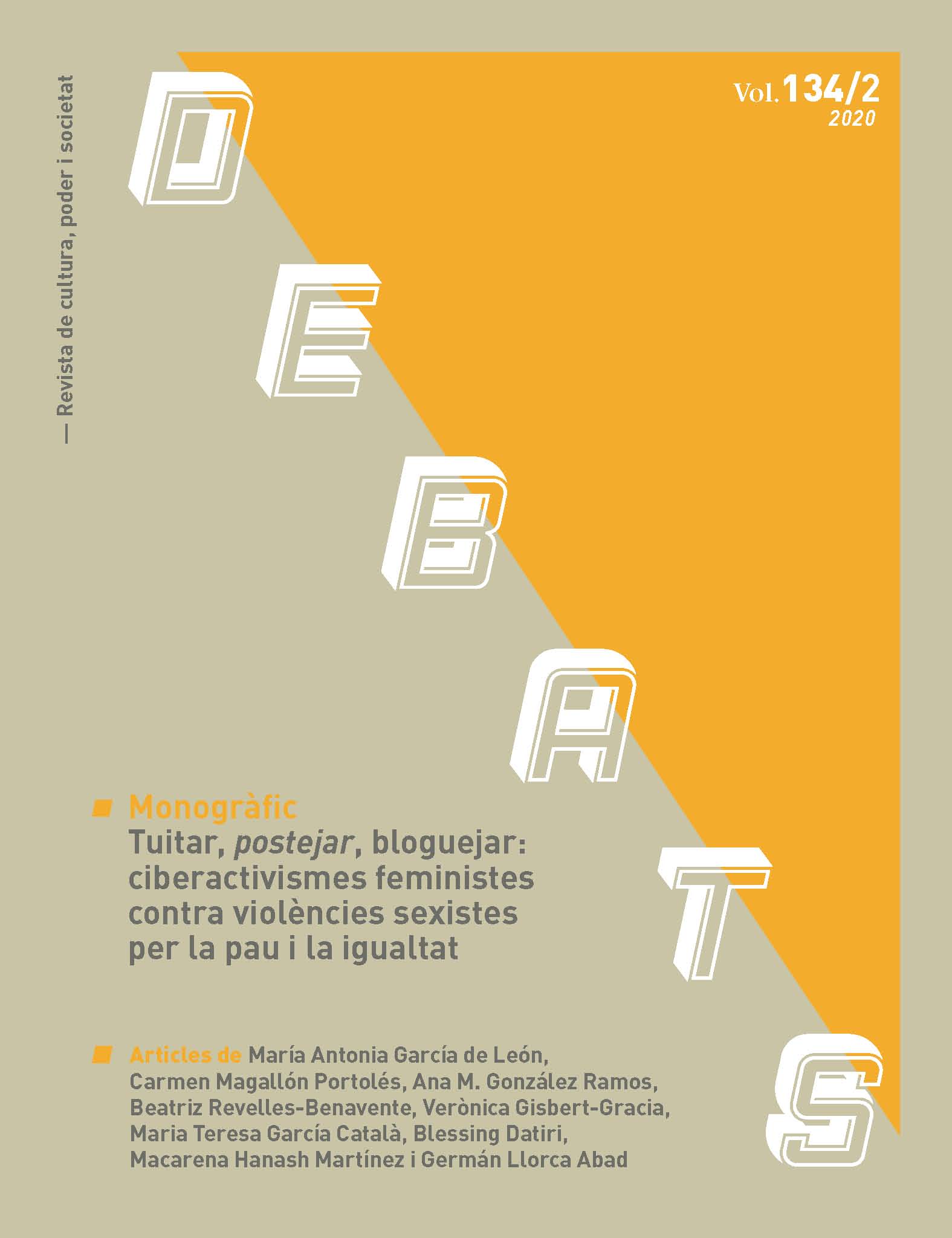Feminist Cyber-resistance to Digital Violence: Surviving Gamergate
DOI:
https://doi.org/10.28939/iam.debats.134-2.7Keywords:
Cyber-Feminism, cyber-violence, manosphere, GamergateAbstract
Women who inhabit cyberspace do not escape patriarchal violence and are subject to strict social control exercised through technological means. Cyberviolence especially affects women with an explicitly feminist presence in virtual spaces. Their participation and their advocacy for feminist values are considered a transgression of the patriarchal mandate that dictates the exclusion or marginalization of women from public spaces. That is why they are the targets of intimidation, harassment and threats of great magnitude. At the same time, digital networks have multiplied the spaces forcollective, political and social action available to women. Thus, online activity has played a fundamental role in the resurgence and revitalization of feminist communities and debates. The objective of this paper is to analyze the projects launched by Zoë Quinn and Anita Sarkeesian, two of the main targets of the Gamergate movement. We will study Crash Override and Speak Up & Stay Safe(r), a helpline and a resource platform for cyberviolence victims, respectively; insofar as feminist cyberresistance projects, within the framework of cyberfeminisms and the current paradigm shift of the culture of protest and feminist organization.
Downloads
Downloads
Published
How to Cite
Issue
Section
License
Without prejudice to the provisions of article 52 of Spanish Law 22/1987 of November 11 on Intellectual Property, BOE (official state bulletin) of November 17, 1987, and pursuant to said legislation, the author(s) surrender(s) free of charge its rights of edition, publication, distribution and sale of the article, for its publication in Debats. Journal on Culture, Power and Society.
Debats. Journal on Culture, Power and Society is published under the Creative Commons license system in accordance with the «Recognition - Non-Commercial (by-nc) modality: The generation of derivative works is permitted provided that commercial use is not made. Nor can the original work be used for commercial purposes».
Thus, when the author submits his/her contribution, he/she explicitly accepts this assignment of publishing and publishing rights. Authors also authorize Debats. Journal on Culture, Power and Society to include their work in an issue of the journal to be distributed and sold.











